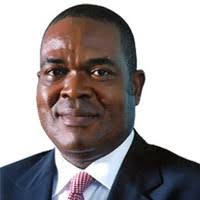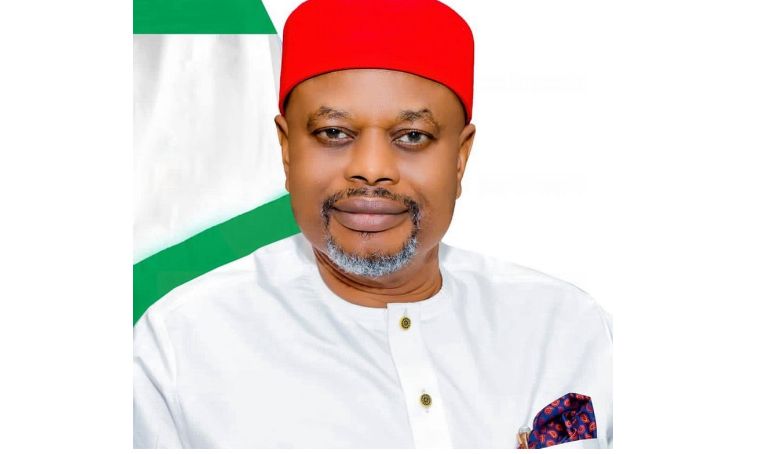It has become very easy to blame patrons of Ponzi schemes (fraudulent investment scams) for their greed and ignorance. But, despite the general awareness creation about the dangers of those schemes, more Nigerians in their millions keep joining the horde of Ponzi customers.
This trend, in recent times, has seen the mushrooming of the investment scams in the country, with many crashing, taking billions of investor funds down the drain. This is in spite of the efforts of regulatory agencies to monitor, regulate, and regularize the operations of these illegal investment outfits.
Recently, the Economic and Financial Crimes Commission (EFCC) published a list of “58 companies posturing as investing entities and defrauding innocent Nigerians of their hard-earned money.” According to the EFCC, these companies were neither registered with the Central Bank of Nigeria (CBN) nor the Securities and Exchange Commission (SEC), as required by law.
The question is: if at one point in time, the EFCC could make a list of as many as 58 companies “posturing as investment entities” without proper registration, is such a list really comprehensive? How often is this kind of list publicized? Why are these Ponzi schemes still mushrooming in the country, even under the searchlight of the EFCC, the CBN and SEC?
While the patrons of these Ponzi schemes cannot be exculpated for their greed and/or ignorance, the incentive for the massive springing up the ‘investment scams’ lies largely in the Nigerian environment. Given normal risks in investment, every investor is usually driven by the rate of returns, ceteris paribus.
While the benchmark interest rate in Nigeria—Monetary Policy Rate (MPR) set by the CBN has been rising, and pushing up lending rates in the financial system, deposit rates have not been rising in tandem. From 18 per cent in June 2023, the MPR has been increased to 27.50 per cent since November 2024; and has remained there.
Consequently, lending rates by deposit money banks (DMBs) and other financial institutions have gone up to hover between 30 and 37 per cent since last quarter 2024. But deposit rates have been sluggish—hardly rising beyond a single-digit level—irrespective of the amount and tenure.
This has constituted a major disincentive to savings and term deposits, as many prospective depositors search widely for better returns. This, in part, pushes not a few prospective depositors/investors to succumb to the temptation of joining the bandwagon in investing in the ‘highly rewarding’ Ponzi schemes. This is by no means to justify their choice.
The DMBs that should ordinarily be wooing depositors (savings, fixed deposits, etc.) are usually reluctant because of the high subsisting Cash Reserve Ratio (CRR), now standing at 50 per cent. This means that each DMB is allowed by the apex bank to keep only half of its total deposits; the CBN keeps and ‘sterilizes’ the other half.
This tight monetary stance of the apex bank has also presented the DBMs with attractive investment options in Federal Government of Nigeria (FGN) Treasury Bills, Bonds, etc. With very high MPR, the CBN offers and sells the FGN T-Bills and bonds also at high rates (implying good yields).
Therefore, rather than aggressively seeking for deposits, the banks opt to massively patronize the CBN’s instruments (to make huge interest incomes), while minimizing their interest pay-outs via modest deposit rates. This, again, accounts for why banks build their balance sheets more with interest incomes than with earnings from their (credit) exposures to the real sectors (e.g. manufacturing, agriculture, etc.).
Faced with the DMBs’ ‘uninviting’ tactics, many Nigerian investors, even discerning ones, join to test the waters by investing in the ‘thriving’ Ponzi schemes. But not a few have had their fingers burnt; because, truly, the illicit investment outfits are out to dupe investors, from the outset.
It also follows that the Ponzi schemes are usually floated by dubious characters; who, more often than not, would be out to launder illicit funds. The suspicion of the massive presence of such funds in the Nigerian environment made the Financial Action Task Force (FATF), on February 24, 2023, to place the country on the ‘FATF Grey List.’
FATF is the global body established in 1995 to lead international action to combat money laundering, terrorism, and arms financing. But, since two years ago, Nigeria has been placed on its ‘Grey List’ due to “increased capital inflows and deficiencies in combating money laundering, terrorism, and arms financing.”
Without a doubt, this type of Nigerian environment, as described by FATF, is a breeding ground for Ponzi schemes, and other bodies that aid illicit funds flow (IFF) globally. This places a huge question mark on the capacity, competence and commitment of the relevant regulatory agencies in the country.
If the EFCC did not publish the list of 58 Ponzi schemes operating in the country at one time, who would believe that there could be so many of them? The EFCC itself has linked the Ponzi schemes to the activities of politically exposed persons (PEPs) in Nigeria, who mostly engage in money laundering.
The EFCC Chairman, Ola Olukoyede, who made the disclosure in Abuja recently, said “PEPs in Nigeria are using internet fraudsters, popularly known as ‘yahoo-yahoo boys’ to launder billions of Naira in stolen public funds into offshore accounts.” He said the “involvement of politicians in these illicit activities highlights systemic corruption within Nigeria’s political and governance systems.”
The EFCC boss said: “When these PEPs steal money in billions, they give it to these boys; they open crypto wallets, and from there, the money goes abroad.” Incidentally, the crypto wallets are owned and operated by Ponzi schemes, floated by ‘faceless’ entities.
This explains why, even after its recent on-site assessment visit to Nigeria, FATF opted to withhold immediate removal of Nigeria from its ‘Grey List.’ The Nigerian Financial Intelligence Unit (NFIU), which coordinates Nigeria’s efforts under the FATF International Cooperation Review Group (ICRG) process, only hopes Nigeria will soon exit the List.
With EFCC’s revelation of the involvement of ‘powerful’ politicians in the IFF, using the Ponzi schemes and the ‘yahoo-yahoo boys’, it gets obvious why the illegal investment outlets are mushrooming in Nigeria. The case of Crypto Bridge Exchange (CBEX) that crashed the other day, and now ‘resurrecting’ and angling to still woo investors, underpins the near-invincibility of the proprietors of the Ponzi schemes in the country.
This also explains why many of the 58 Ponzi schemes identified and published by the EFCC are yet suing the regulatory agencies, essentially to give them ample time to keep plying their illegal trade. To these Ponzi schemes, the Nigerian environment provides, and remains, a fertile ground for them to flourish.

The author, Okeke, a practicing Economist, Business Strategist, Sustainability expert and ex-Chief Economist of Zenith Bank Plc, lives in Lekki, Lagos. He can be reached via: obioraokeke2000@yahoo.com (08033075697) SMS only




